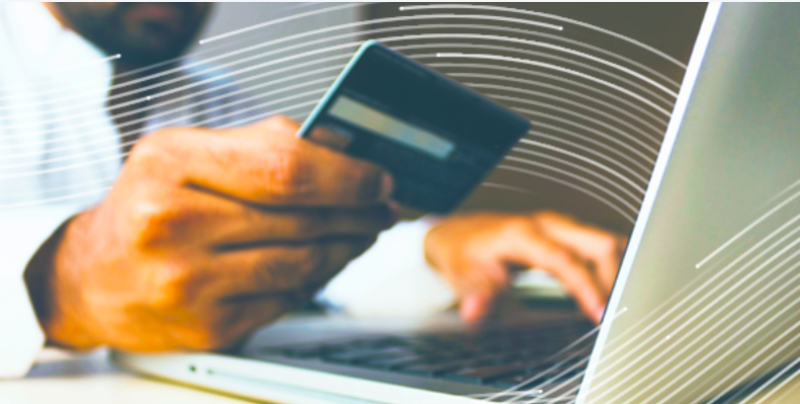- Home
- Blog
- Personal Finance
- Is it Right for You?
Going Cash-Free: Is it Right for You?
Whether you’re tired of the inconvenience of cash or want to keep better track of your transactions, here are the pros and cons of going cashless.
٥ يونيو ٢٠٢٠ — 5 min read

Let’s try something. Reach out to your friends, family, or roommates and ask if anyone has $50 they could loan you. Did anyone have that much money on them? Or did they say that they needed to go to the bank, or ask if they could electronically transfer you the money?
In recent years, it’s become increasingly common for people to not carry cash around with them, or to just carry a little bit in the case of emergencies. While there are exceptions, the majority of consumers have moved to using their credit and debit cards and other forms of electronic, cashless payment.
At the end of 2019, 70% of consumers in a survey answered that they preferred card payments to cash, with 38% of card users citing inconvenience as the main reason they preferred cards to cash.
And it’s not just consumers who are looking to go cashless. Corporations like Starbucks, Sweetgreen, and even Amazon have all implemented cashless measures at their physical locations.
Whether you’re tired of the inconvenience of cash, want to keep track of your transactions, or you’re worried about the possibility of your cash carrying germs, you may be considering taking your payments completely cashless. Let’s take a look at what that could mean for you going forward.
Why go cashless?
Many people around the world have enjoyed the benefits of transitioning away from cash and toward electronic payment methods. These are some of the most popular reasons for making the switch:
It’s convenient. No more lugging that heavy wallet around, and no more digging around trying to find the right bills. If you’re short on time and want a quick transaction, all you need to do is swipe a card.
It leaves a paper trail. Does anyone keep a record of every single time they pay with cash? When you pay electronically, on the other hand, you have a built-in record of everything you’ve purchased, when you purchased it, and how much it cost. If you’re trying to budget, this makes it easier for you to see exactly how much you’re spending and where your money’s going. Or if your balance is lower than you expected, you’ll be able to see where the money went—or if your account information has been compromised.
**Some cards come with benefits. **From discounts to rewards, cash-back points, airline miles, and more, using your card frequently now could bring you a lot of benefits in the future.
Why you might want to keep a little cash
Even as technology continues to advance, it’s not likely that cash is going anywhere anytime soon. 88% of surveyed consumers stated that they still use cash sometimes, and here’s why:
Data security and privacy are a concern. With technological advancement comes new data security worries, and the world of payments is not an exception. E-commerce sites can be breached, and card information can be stolen. Or, after buying online, you might start seeing targeted advertisements based on your purchase and search history.
Cashless payment isn’t always a guarantee. Some vendors (particularly smaller, local businesses) only take cash. Or if they accept card payments, they might have a required minimum or add a small additional service fee to the transaction. Or maybe a store or restaurant’s card reader could go down for the day, and you’ll need to find an ATM. It might be small now, but these fees can quickly add up—and your card might end up being more of an inconvenience in these establishments.
**You could spend more!**When you have cash in your wallet, it’s easy to keep track of how much you have left, and how much you’ve spent. When all you need to do is swipe your card, it can be easy to lose track of what you’ve purchased and what’s left in your account.
Could my cash be contaminated?
In the wake of the global COVID-19 pandemic, this has been a question on everyone’s minds. Can cash carry the virus? Which payment method is the least likely to put you at risk of cross-contamination?
You’ve been told to try to avoid coming into contact with high-touch surfaces (such as door handles, handrails, and tables). Since cash frequently changes hands, you might be worried about the chances of your money carrying some harmful germs.
It’s true: coins and bills can potentially carry viruses, bacteria, and other pathogens. It’s not the most common method of transmission, but it can potentially happen. If it gives you peace of mind and makes you feel less anxious about the possibility of cross-contamination, prioritize electronic payment and card payments, since your credit and debit cards can be wiped down. If you do need to handle cash, wear gloves if possible, and always wash your hands after coming into contact with new, potentially infectious objects.
In conclusion…
From buying a house to transferring money overseas, there are a few situations where paying with cash obviously isn’t the best move. If you enjoy the convenience of electronic payments and want to make the transition into a completely cashless lifestyle, you’re not the only one ready to make the switch. As long as you know what works for your purchases and your lifestyle, there’s no reason not to explore alternate methods of payment.